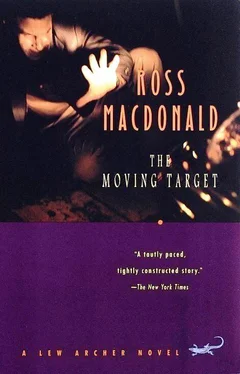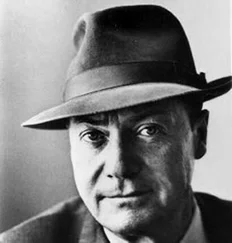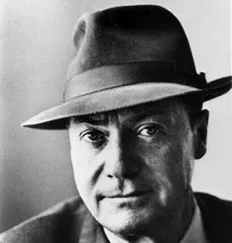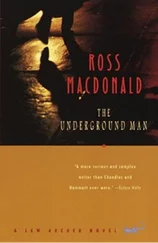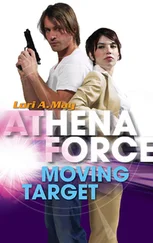“It wouldn’t help Miranda if she did. Miranda’s a funny girl. She’s very sensitive, but I don’t think she knows it. She’s always sticking her neck out, living beyond her emotional resources.”
“Are you going to marry her, Bert?”
“I will if I can.” He smiled wryly. “I’ve asked her more than once. She hasn’t said no.”
“You could take good care of her. She’s ripe for marriage.”
He looked at me in silence for a moment. His lips continued to smile, but his eyes flashed a hands-off signal. “She said you had quite a talk on your drive this afternoon.”
“I gave her some fatherly advice,” I said. “About driving too fast.”
“As long as you keep it on the paternal level.” Abruptly he changed the subject. “What about this character, Claude? Could he be in on the kidnapping?”
“He could be in on anything. I wouldn’t trust him with a burnt-out match. But I didn’t get anything definite. He claimed he hadn’t seen Sampson for months.”
Straw-yellow fog lamps brushed the side of the house, and a moment later a car door slammed. “That must be the sheriff,” Graves said. “It took him a hell of a long time.”
The sheriff came in with a great show of haste, like a sprinter breasting the tape. He was a big man in a business suit, carrying a wide-brimmed rancher’s hat. Like his clothes, his face was hybrid, half cop and half politician. The sternness of his jaw was denied by the softness of his mouth, a loosely folded mouth that liked women and drink and words.
He thrust out his hand to Graves. “I would have been here sooner, but you asked me to pick up Humphreys.”
The other man, who had followed him quietly into the room, was wearing a tuxedo. “I was at a party,” he said. “How are you, Bert?”
Graves introduced me. The sheriff’s name was Spanner. Humphreys was the District Attorney. He was tall and balding, with the lean face and haunted eyes of an intellectual sharpshooter. He and Graves didn’t shake hands. They were too close for that. Humphreys had been Deputy Prosecutor when Graves was District Attorney. I stood back and let Graves do the talking. He told them what they needed to know and left out what they didn’t need to know.
When he had finished, the sheriff said: “The letter orders you to drive away in a northern direction. That means he’ll be making his getaway in the other direction, toward Los Angeles.”
“That’s what it means,” Graves said.
“Now if we set up a road block down the highway a piece, we should be able to catch him.”
“We can’t do that,” I said in words of one syllable. “If we do, we can kiss good-bye to Sampson.”
“But if we catch the kidnapper, we can make him talk–”
“Hold it, Joe,” Humphreys put in. “We’ve got to assume that there are more than one. If we knock off one of them, the other or others will knock off Sampson. It’s as clear as the nose on your face.”
“And it’s in the letter,” I said. “Have you seen the letter?”
“Andrews has it,” Humphreys said. “He’s my fingerprint man.”
“If he finds anything, you should check with the F. B. I. files.” I sensed that I was making myself unpopular, but I had no time to be tactful and I didn’t trust small-time cops to know their business. I turned to the sheriff: “Are you in touch with the L. A. County authorities?”
“Not yet. I felt I should assess the situation first.”
“All right, this is the situation. Even if we obey instructions to the letter, there’s a better than fifty-fifty chance that Sampson won’t come out alive. He must be able to identify at least one of the gang – the one that picked him up in Burbank. That’s bad for him. You’ll make it worse if you try to trip the money pickup. You’ll have a kidnapper in the county jail, and Sampson lying somewhere with his throat cut. The best thing you can do is get on the wires. Let Graves handle the business at this end.”
Spanner’s face was mottled with anger, his mouth half open to speak.
Humphreys cut him off. “That makes sense, Joe. It’s not good law enforcement, but we’ve got to compromise. The thing is to save Sampson’s life. What say we get back to town now?”
He stood up. The sheriff followed him out.
“Can we trust Spanner not to make his own arrangements?”
“I think so,” Graves said slowly. “Humphreys will keep an eye on him.”
“Humphreys sounds like a good head.”
“The best. I worked with him for seven-odd years, and I never caught him in a bad mistake. I got him the appointment when I resigned.” There was some regret in his voice.
“You should have stuck with the work,” I said. “You got a lot of satisfaction out of it.”
“And damned little money! I stuck with it for ten years, and I ended up in debt.” He gave me a sly look. “Why did you quit the Long Beach force, Lew?”
“The money wasn’t the main thing. I couldn’t stand podex osculation. And I didn’t like dirty politics. Anyway, I didn’t quit, I was fired.”
“All right, you win.”
He glanced at his watch again. It was nearly eight thirty. “Time to get on our horse.”
Alan Taggert was in the study, in a tan trench coat that bunched at the waist and made his shoulders look huge. He brought his hands out of his pockets with a gun in each fist. Graves took one, and Taggert kept the other. They were .32 target pistols with slender blue-steel snouts and prominent sights.
“Remember,” I said, for Taggert’s benefit, “no shooting unless you’re shot at.”
“Aren’t you coming along?”
“No.” I said to Graves: “You know the corner at Fryers Road?”
“Yes.”
“There’s no cover around?”
“Not a thing. The open beach on one side, and the cut-bank on the other.”
“There wouldn’t be. You go ahead in your car. I’ll tag along behind and park a mile or so down the highway.”
“You’re not going to try a fast one?”
“Not me. I just want to see him go by. I’ll meet you at the filling station at the city limits afterward. The Last Chance.”
“Right.” Graves twirled the knobs of the wall safe.
From the city limits to Fryers Road the highway was four-lane, a mile-long shelf cut into the bluffs that stood along the shore. It was divided in the middle by a strip of turf between concrete curbs. At the intersection with Fryers Road the turf ended and the highway narrowed to three lanes. Graves’s Studebaker made a quick U turn at the intersection and parked with its lights burning on the shoulder of the highway.
It was a good place for the purpose, a bare corner rimmed on the right by a line of white posts. The entrance to Fryers Road was a gray-black hole in the side of the bluff. There wasn’t a house in sight, or a tree. The cars on the highway were few and far between.
It was ten minutes to nine by my dashboard clock. I waved to Taggert and Graves and drove on past them. It was seven tenths of a mile to the next side road. I checked it on my mileage. Two hundred yards beyond this side road a parking space for sightseers had been built up over the beach on the right side of the highway. I turned off and parked with the lights out and the nose of the car pointed south. It was seven minutes to nine. If everything went on schedule, the pay-off car should pass me in ten minutes.
The fog closed around the car when it stopped, rising from the shore like an impossible gray tide. A few pairs of headlights went north through the fog like the eyes of deep-sea fish. Below the guardrail the sea breathed and gargled in the darkness. At two minutes after nine the rushing headlights came around the curve from the direction of Fryers Road.
The plunging car wheeled sharply before it reached me and turned up the side road to the left. I couldn’t see its color or shape but I heard it losing rubber. The driver’s technique seemed familiar.
Читать дальше
